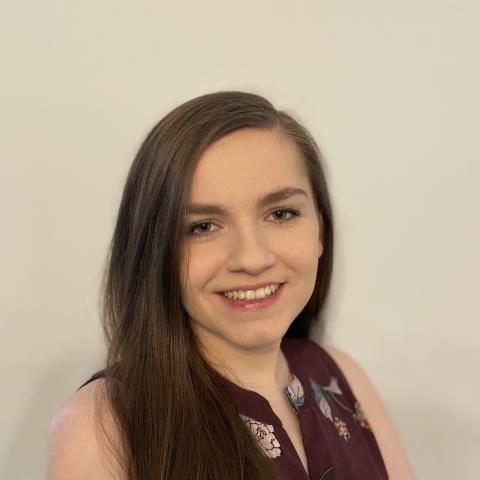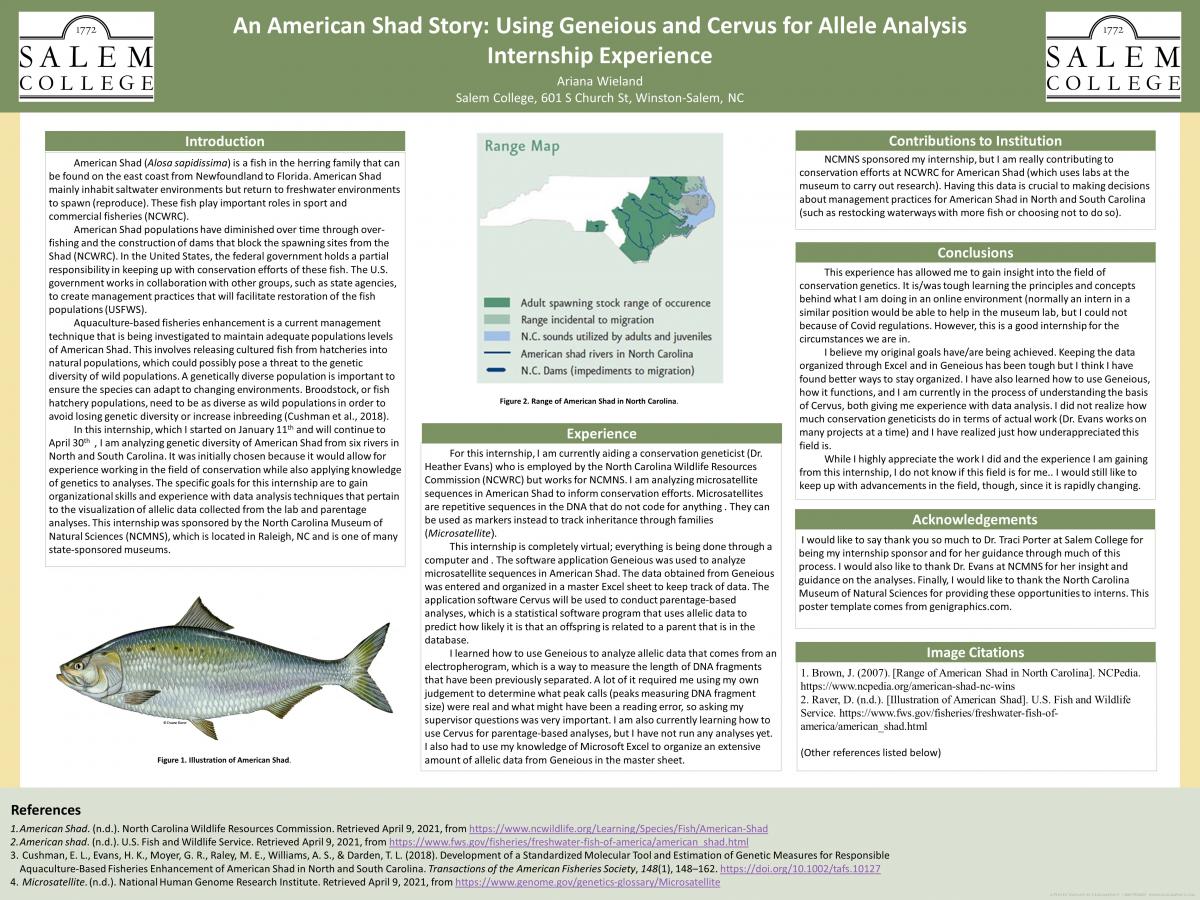
This poster describes an ongoing internship experience with the North Carolina Museum of Natural Sciences. The internship explores software and data analysis techniques used to visualize microsatellite sequences in American Shad (Alosa sapidissima) in an effort to aid conservation efforts of this ecologically and economically important fish species. Microsatellites are repetitive sequences of DNA that can be used to determine the heritage of an organism. Parentage-based tagging is a technique used to track the genetics of fish raised in hatcheries. This data can be used to track broader population trends when fish raised in hatcheries are added to rivers to enhance existing populations . The software application Geneious was used to analyze genetic sequence data, and Microsoft Excel was used to display it. The data analysis is part of a larger project that seeks to determine the presence of certain microsatellite sequences in American Shad samples from various rivers in North and South Carolina. This information is used to determine the most efficacious strategies for management of the species in target areas. The work is supported by the North Carolina Wildlife Resource Commission (NCWRC) and the North Carolina Museum of Natural Sciences (NCMNS).
Ariana Wieland hails from Johnston County, North Carolina. She will graduate with a Bachelor of Science in Biochemistry this spring. Her time at Salem has helped her realize her passion for working with her hands in the lab and in the field. She hopes to use her knowledge of Biology and Chemistry to contribute to the field of conservation, such as working in a lab that supports these efforts.
Comments
Growing up, shad were considered highly prized "feeder fish"; I had no idea they were being imported from their salt water environments just to be used as freshwater bait. I feel incredibly guilty now. I'm glad that you and your internship partners are giving them the attention they deserve as part of our ecosystem.

